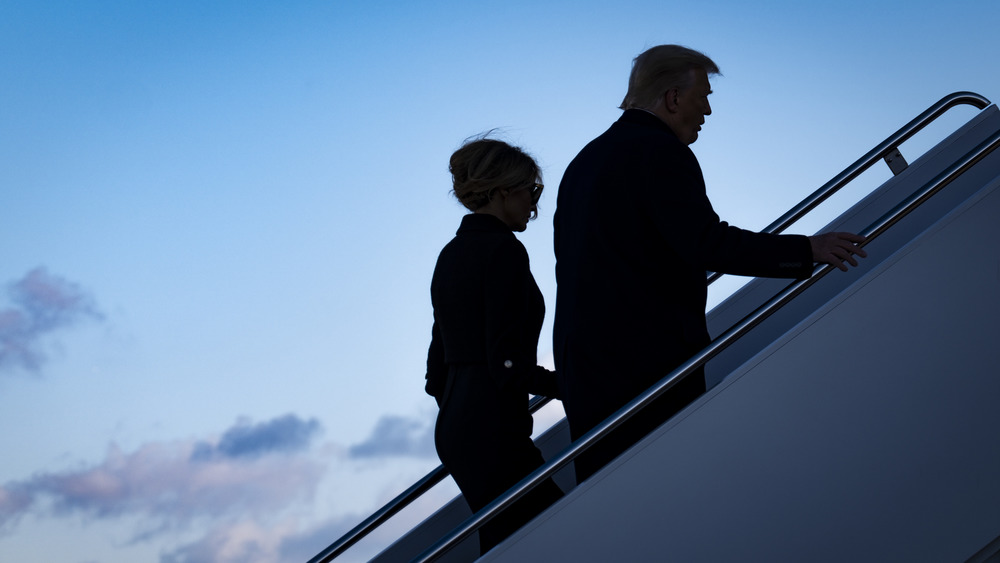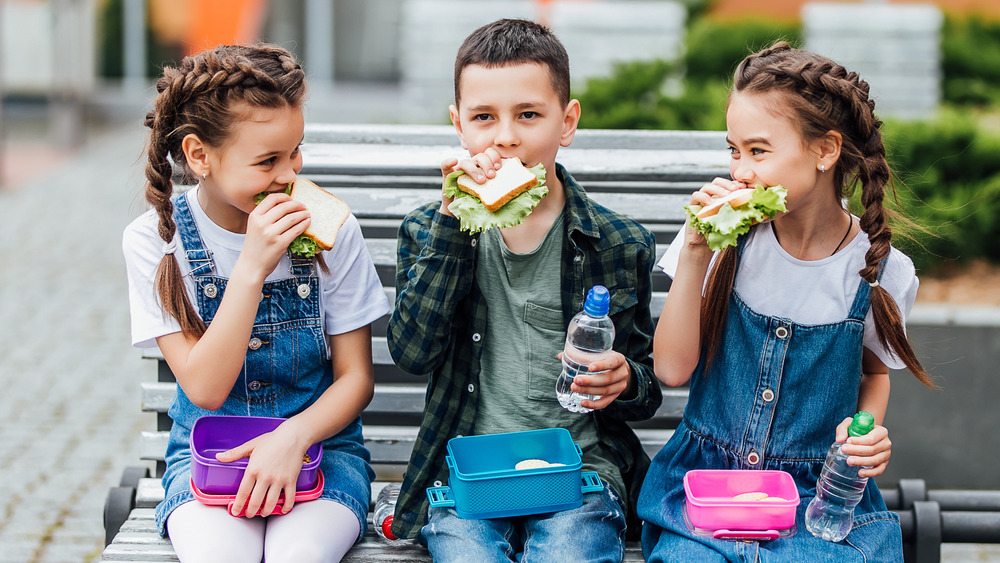Unfortunate Ways The Trump Administration Has Affected American Food
Four years after the inauguration of former President Donald Trump, issues in the food industry, many of which were either created or enhanced by the administration, have thrived.
The effect most consumers are likely to notice is the increase in food prices. As CNN reported in August 2020, the pandemic caused disruptions in the food supply line at a point when more people than ever were opting to cook food at home, which raised the price for groceries.
However, the price of food had risen even without the impact of the pandemic due to the bullish attitude the administration had taken over trade. In 2019, People noted the end of the Tomato Suspension Agreement, a 22-year-old agreement between the United States and Mexico. Now, imported tomatoes from Mexico were priced with a 17.5 percent tariff. In 2018, Eater compiled a long list of various foods that the administration had subjected to tariffs, from Canadian maple syrup to European rice to Chinese grapes.
American goods have also suffered tariffs, due, as Reuters wrote in November, to the US's biased subsidizing of Boeing: "the EU will impose tariffs... of 25% on a range [of] products including tobacco, nuts, fruit juice, fish, spirits, bags, tractors and casino and gym equipment."
Perhaps in response, the US then imposed tariffs on European wines in December, according to Wine Mag, further hurting restaurants struggling under pandemic conditions. These tariffs, however, could be easily removed when reviewed in 180 days.
Relaxed regulations for food safety
Under the Trump administration, the FDA grew more relaxed when it came to inspecting food quality. In July 2019, Science revealed that between then and Trump's inauguration, the FDA issued 1,033 warning letters, 33 percent fewer than they did during the same period under Obama. These letters typically demand immediate changes in company practice, making them an essential component to food safety in the country.
More worrisome, however, is Civil Eats's report from April that the United States Department of Agriculture (USDA) was privatizing meat inspections during the onset of the pandemic. Without an independent party inspecting the meats, there is little incentive to pay as much attention to potentially contaminated carcasses.
That, though, was only the latest move made by an administration with an operating logic of deregulation. As Grub Street noted during a 2017 furor over a shift of responsibility for international food safety from the Food Safety and Inspection Service to an ex-Big Pharma head, the administration had already weakened food safety standards at least six times in its first year. These instances include reducing the FDA's budget by $117 million and the Agricultural Marketing Service's allowing of fake organic products to enter the country.
School lunches no longer need to be as nutritious
A similar attempt at deregulation was directed at school lunches. As Food Beast noted, that started with the Trump administration rolling back limitations on sodium and flavored milk put in place by the Healthy, Hunger-Free Kids Act of 2010. A Maryland court did strike out a 2018 attempt to effectively eliminate changes required by the Healthy, Hunger-Free Kids Act, as Food Navigator reported in April 2020. However, that decision did not end the years-long tussle the Trump administration engaged in with school lunches.
In August 2020, Civil Eats pointed to a proposition conceived by the USDA that would include rollbacks for school lunch standards. It loosens the mandate for vegetable variety, reduces the fruit offered for breakfast, and includes meal components a la carte. For example, potatoes could count as a vegetable instead of a starch.
The biggest concern, as Colin Schwartz, deputy director of legislative affairs for the Center for Science in the Public Interest, wrote on the organization's website, is that "this would create a huge loophole in school nutrition guidelines, paving the way for children to choose pizza, burgers, French fries, and other foods high in calories, saturated fat or sodium in place of balanced school meals."
But, as Food Tank notes, the rule was open for comments all the way until December 28, 2020, meaning that it would be relatively simple for the new Biden administration to reverse any decisions that may have been made.


